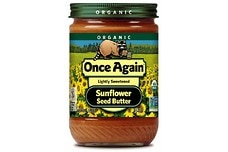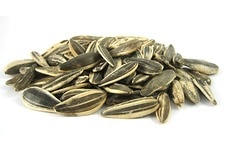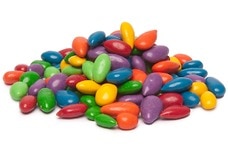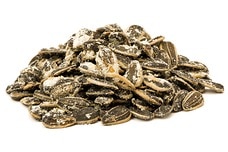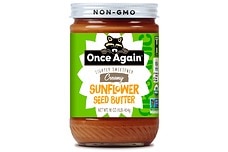Benefits of Sunflower Seeds
Hundreds of sunflower seeds come from each yellow sunflower head. Not only are these seeds flavorful, but they also contain beneficial nutrients on which your body relies. Some people worry about eating sunflower seeds because of their high fat content. Although these seeds are rich in oil, it is the healthy form of plant oil that provides your body with polyunsaturated fats. Sunflower seeds also contain dozens of vitamins, minerals, and phytochemicals that are necessary for a variety of physiological processes.
Sunflower Seed Snacks
Perhaps the best aspect of sunflower seeds is their versatility as a food source. Roasted sunflower seeds are an excellent snack that gives you protein and healthy fats. They also make a delightful, crunchy addition to a vegetable salad, provide flavor for a sandwich, or form the bulk of a vegetarian burger. No matter how you use your sunflower seeds, you can enjoy the benefits of the following nutrients that are contained in each crunchy kernel:
Vitamin E
Vitamin E is actually not a single compound but eight different compounds, all of which are fat soluble. Your body primarily uses alpha-tocopherol, the form that is found in sunflower seeds. Alpha-tocopherol operates as an antioxidant, meaning that it combats oxidative damage in cells (Traber, 2015). Vitamin E also protects the components of lipoproteins, which traffic fats throughout the body. Failure to get enough vitamin E can result in neurological problems, such as balance problems, lack of coordination, muscle weakness, and eye damage.
Given the high fat content of sunflower seeds, they make an excellent source of this fat-soluble vitamin. Each quarter-cup serving of sunflower seeds provides 82% of the Daily Value (DV) for vitamin E.
Phytosterols
Phytosterols are a type of nutrient found in plant-based foods. Although phytosterols are not considered vitamins or minerals, there is growing recognition of their role in human health. Getting enough phytosterols is associated with lower cholesterol levels, better immune system functioning, and even protection against certain cancers (WH Foods, 2014). In fact, phytosterols are often added to processed oils and foods because of their nutritious properties. Sunflower seeds offer between 270 and 289 milligrams of the nutrients in a 100-gram serving.
Magnesium
Magnesium is an essential mineral that is required for hundreds of enzymatic reactions in the body. Without enough magnesium, many physiological processes begin to fail. For example, magnesium is important for energy metabolism, creation of new DNA, production of the antioxidant glutathione, providing structure to bone and cellular membranes, transporting ions across cell membranes, and signalling between cells (Volpe, 2014).
Because of its crucial role for these physiological processes, it is important to get enough magnesium in your diet to avoid health problems. In particular, magnesium seems to be very important for proper cardiovascular functioning. Getting enough magnesium is associated with lower blood pressure, better endothelial functioning, and decreased risk of cardiovascular disease (Volpe, 2014).
Each quarter-cup serving of sunflower seeds contains 28% of the DV for magnesium (WH Foods, 2014).
Selenium
Selenium is another trace element that your body needs to function properly. Selenium is an essential component of at least 25 types of proteins in the human body (Tsuji, 2015). It is particularly important for the activity of glutathione peroxidases, a class of molecules with antioxidant effects. Thus, selenium prevents the damage of cellular DNA through oxidative damage.
Failure to get enough selenium has been linked with risk of cancer (WH Foods, 2014). In a 2014 systematic review of available human studies comprising more than 144,000 participants, researchers found that higher selenium intake is associated with a 31% lower risk of cancer from any cause and a 40% lower risk of dying from cancer (Vinceti et al., 2014). Each serving of sunflower seeds provides 34% of the DV for selenium (WH Foods, 2014).
Copper
Copper is a key component of enzymes involved in various physiological reactions that govern energy production and iron metabolism. Copper is also important for proper neural functioning. The presence of copper is needed to produce the neurotransmitter dopamine and to create the myelin sheath that keeps information traveling quickly through your neurons (Prohaska, 2014). In fact, some evidence suggests that failure to get enough copper may be associated with higher risk of Alzheimer’s disease, Parkinson’s disease, and other neurological conditions (Prohaska, 2014). It is also important for cardiovascular functioning.
Sunflower seeds are one of the best available sources of copper, with each quarter-cup serving providing 80% of the DV for the mineral (WH Foods, 2014).
Recipes with Sunflower Seeds
The following recipes utilize these scrumptious seeds to supply a nutritious snack or meal that will have your mouth watering.
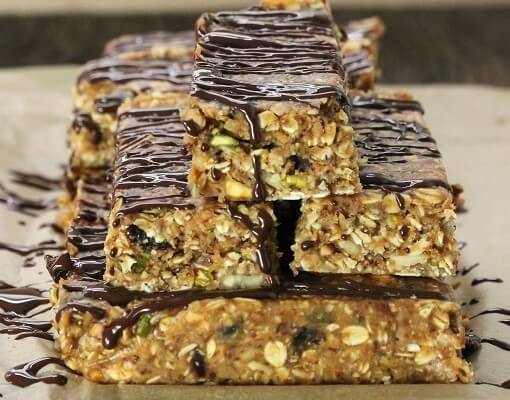
No-Bake Granola Bars Recipe {gluten-free, vegan}
These chewy bars supply a surprisingly scrumptious savor with the nutrients you need in a collation that is easy to create. Follow this incredible recipe to enjoy a quick snack on any day of the week, and enjoy these delectable granola bars today.
Ingredients: Gluten-free rolled oats, peanut butter, dried tart cherries, pistachios, flaxseed meal, walnuts, pumpkin seeds, sunflower seeds, agave syrup. unsweetened applesauce, melted cacao nibs or dark chocolate.
Total Time: 15 minutes
| Yield: 8 - 10 servings
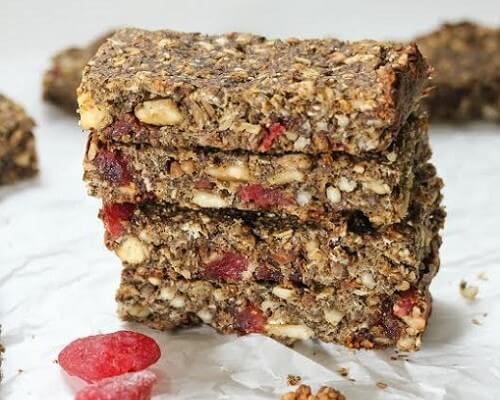
Homemade Granola Bars Recipe {gluten-free}
For a more traditional bar with a crispy crunch that will delight your tongue and tantalize your tastebuds, try this recipe for a fruit-filled bar that will satiate your midday hunger pangs. Pack these in a baggie and bring them to work or school for the perfect snack between meals.
Ingredients: Dried mulberries, dried strawberries, raw cashews, organic peanut butter, ripe bananas, raw sunflower seeds, hemp protein powder, gluten-free rolled oats, chia seeds, flaxseed meal.
Total Time: 40 minutes
| Yield: 12 bars
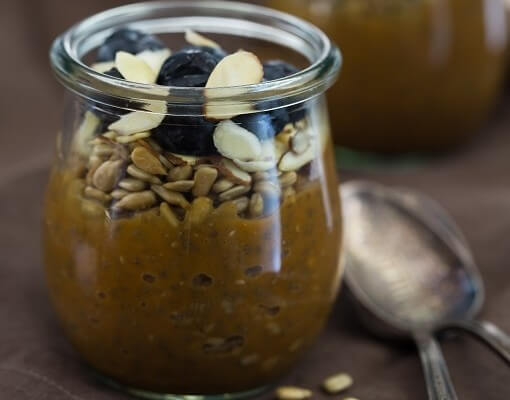
Pumpkin Chia Seed Pudding Recipe
This palatable pudding offers the perfect way to start your day with the rich flavor of pumpkin and the added crunch your favorite nuts and seeds. Sunflower seeds make up just some of the tasty toppings for this superb meal that is surprisingly healthsome, so try this scrumptious recipe today!
Ingredients: Milk, pumpkin puree, chia seeds, maple syrup, pumpkin spice, sunflower seeds, sliced almonds, fresh blueberries.
Total Time: 10 minutes
| Yield: 4 servings
Sunflower Seed Snacks
Searching for a unique variety of the snacks? Discover a small sample of our selection below, or find the full list of our sunflower seed snacks and products here.
Healthy Eating
- Healthy Snacks
- Healthy Meals
- Healthy Recipes
- Sports Nutrition
- Nutrition and Special Diets
- 21 Day Fix
- 5 Popular Diet Similarities
- Alkaline Diet
- Anti-Inflammatory Diet
- Calorie Counting
- Carb Cycling Diet
- Celiac Disease
- Cholesterol
- Clean Eating
- Crohn's Disease
- DASH Diet
- Detox Diet
- Diabetes
- Diabetes Diet
- Diet Pill Dangers
- Fat Burning Foods
- Gluten-free Diet
- Glycemic Index
- Heart Health
- High Blood Pressure Diet
- High Fiber Foods
- How to Eat Healthy
- How to Lower Blood Pressure
- Hypertension
- IBS Diet
- Ketogenic Diet
- Liquid Diet
- Low GI Foods
- Low-Carb Diet and Foods
- Low-Fat High-Carb Diet
- Mediterranean Diet
- Mediterranean Diet Foods
- Military Diet
- Nutrition Labels Explained
- Paleo Diet
- Raw Food Diet
- Superfoods
- Sustainable Weight Loss
- Thrive Diet
- Vegan Diet
- Vegetarian Diet
- Weight Loss Shakes
- Whole30
- Vitamins, Minerals & Nutrients

